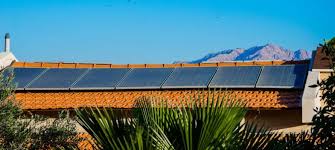As the global coronavirus health crisis continues to grip the world, medical professionals around the world emphasize the importance of good hand hygiene that is based on regular and thorough cleaning hands with soap and water or with an alcohol-based hand rub.
The ongoing pandemic has led to a surge in demand for alcohol-based disinfectants in the form of hand sanitizer.
Ethanol has mainly been generated from sugar cane and corn, a “first-generation” process because it is directly taking the food to generate fuel.
As a small country, Israel currently has no ethanol industry. It is because Israel does not have the water, the land or the capacity to grow huge fields of corn or sugar cane, like in the US or Brazil.
Israel is completely dependent on the annual import of tens of thousands tons of ethanol. As the crisis continues, concerns have emerged of shortages of hand sanitizer in Israel as a result of quarantine conditions in other states, global demand, and import limitations.
For the first time, a groundbreaking development from
Tel Aviv University researchers enables the local production of ethanol in Israel, from plant and paper waste, in a cost-effective and environmentally-friendly way.
The process, which uses a novel lignin degradation method could significantly cut back on production costs and lead to a decrease in the use of edible plant sources, help protect the environment, reduce the use of various pollutants, and greenhouse gas emissions, due to environmental-friendly waste processing.
Lignin is a complex macromolecule important for the formation of cell walls of plants. It exists in all types of agricultural waste.
This novel process is a game-changer in the way that ethanol would be manufactured in Israel and remote countries where the production of ethanol is difficult.
The team at TAU has been working on the process of recycling waste and converting it into ethanol for the past five years, but the development of local ethanol production has become more significant with the prevalence of COVID-19.
But the generation of bioethanol from waste might prove to be the answer to this problem. Production of ethanol from waste is a “second-generation” process as does not require fertilizers or monoculture planting that has many environmental issues.
The joint TAU and
University of Haifa teams have developed an effective pre-treatment method that dramatically reduces pollution, doesn’t require the use of hazardous substances, and ends up being less costly and less complex.
The TAU team will soon begin a pilot program using agricultural waste to create ethanol at the
Yehuda Naftali Botanic Garden at Tel Aviv University. The garden will give the team their tree trimmings, grass, plants, and other waste. The project will take about two years to complete, similar to the amount of time it could take to commercialize the process.
This isn’t the only study or method currently in development to produce ethanol from waste. In a separate study, researchers from the University of Haifa also examined the possibility of producing ethanol from watermelon pulp. The study found that the fruit residue can be used to produce ethanol, an alternative biological fuel for vehicles, which is also the main ingredient in alcohol.
Currently, some 620,000 tons of plant and similar waste and 35,000 tons of paper waste - waste that requires management and resources - are produced annually in Israel.
Source:
NoCamels.com









